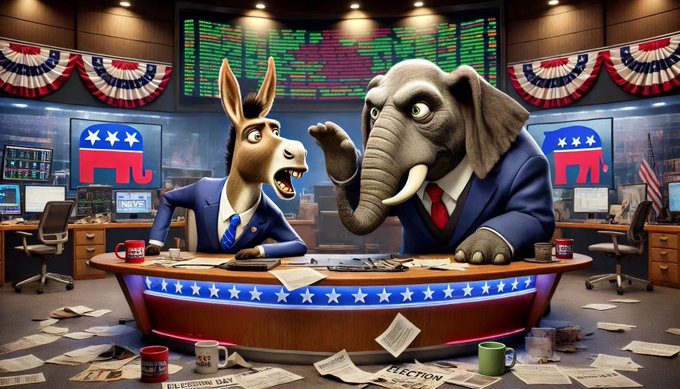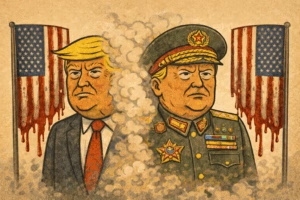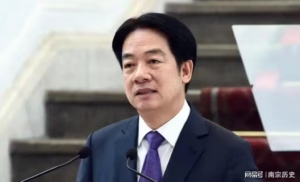The upcoming election in the United States has analysts and market participants bracing for potentially significant shifts in financial markets. Each possible outcome—whether a Republican sweep, a Trump victory with a split Congress, a Harris victory with a split Congress, or a Democrat sweep—is expected to provoke unique responses in various sectors, from foreign exchange to commodities and equities. Here, we explore the potential financial consequences associated with these different scenarios.
Broader Market Reactions to Election Results
Each election outcome carries distinct implications for the value of the US Dollar. Analysts suggest that a Republican sweep is likely the most favorable scenario for the Dollar. In this event, a combination of loose fiscal policy and tight monetary policy, alongside protective tariffs, is projected to benefit the Greenback. According to Deutsche Bank, the Dollar would strengthen broadly across currency pairs in a Republican victory, particularly in a scenario where “US exceptionalism” is highlighted, potentially at the expense of currencies exposed to China, such as the Australian Dollar (AUD).
If a Democratic sweep occurs, however, the forecasted impact on the Dollar changes direction. With a potential easing of tariff pressures on China, the US Dollar might weaken, which could favor emerging market currencies (EMFX) and the Chinese Yuan. The magnitude of these moves could be substantial, although Deutsche Bank posits that the Republican sweep would produce the most pronounced shifts.
Commodity Markets: Gold, Copper, and Oil
Commodity prices, too, are expected to reflect the election’s influence. Under a Republican sweep, Gold and Copper might exhibit contrasting movements, with Gold experiencing gains and Copper facing downward pressure. However, if Harris were to secure the presidency, both commodities could see modest gains. The contrasting policies on fiscal and trade matters under each administration play a significant role in shaping these forecasts.
Oil prices, specifically, could react to different election outcomes in various ways. Analysts at ING suggest that a Republican win could support oil prices initially due to tax cuts but might exert downward pressure over the long term due to the emphasis on US energy independence and increased pressure on OPEC+ to boost supply. Furthermore, “stricter sanction enforcement against Iran” is cited as a possible risk factor that could drive oil prices higher.
In a Trump victory with a split Congress, the initial emphasis on foreign policy might ease tensions in the Middle East, which could weigh on oil prices. Additionally, efforts to negotiate a resolution between Russia and Ukraine could exert further downward pressure on prices through 2025. Conversely, a Harris presidency is associated with lower growth prospects for oil, which may suppress prices in the short term. Over the longer term, oil prices could remain lower under a Harris administration compared to a Trump administration.
Stock Market Preferences and Sector-Specific Impacts
When it comes to the stock market, analysts observe no overwhelming preference for either Trump or Harris, as “Trump has eroded a lot of the GOP’s historical edge on financial issues” due to his populist stance, aggressive tariff strategy, and disregard for fiscal conservatism. That said, some sector-specific reactions are anticipated. For instance, a Harris victory is seen as potentially beneficial for solar energy companies, while a Trump win would likely have the opposite effect. Trump has also publicly stated his intentions to make the US a leader in cryptocurrency, which could impact the sector if he regains office.
Bond Market and Treasury Yields
The bond market, particularly US Treasuries, could experience notable shifts depending on the election outcome. ING notes that under a Trump presidency, yields are likely to rise, with a steeper yield curve expected, especially in a scenario where Republicans control Congress. A “risk-on theme” could push the US 10-year yield towards a 5% range. Additionally, Trump’s assertive stance on fiscal policy, coupled with rising deficits, could lead to an increase in bond issuance, potentially pressuring bonds further.
In the case of a Trump victory with a split Congress, inflation risks could still weigh on bonds, albeit to a lesser extent. With a Harris presidency, however, bond yields are anticipated to rise more gradually. A tighter fiscal policy response is likely, which could support lower rates along the yield curve, helping to maintain stability in Treasury markets.
Inflation and the Federal Reserve’s Policy Direction
If former President Donald Trump were to secure the presidency again, his proposed policies—such as increasing tariffs, maintaining a more relaxed fiscal stance, and implementing stricter immigration policies—are largely seen as inflationary forces within the US economy. These changes could restrict the Federal Reserve’s ability to continue lowering interest rates in the coming years, as sustained inflation pressures would necessitate a more cautious monetary approach. Conversely, should Senator Kamala Harris claim the presidency, the Federal Reserve might feel compelled to take a more active role in supporting the economy, especially if less fiscal stimulus is forthcoming from Congress. In the event of a Trump win without a full Republican sweep, lingering uncertainties about tariffs and tax cuts could temper the Fed’s willingness to pursue aggressive rate cuts in 2025.
Potential Scenarios for Fiscal Policy and Economic Outlook
According to Credit Agricole, currency investors are preparing for two potential scenarios that are considered equally likely:
“President Harris with a divided Congress that could result in a dysfunctional government but leave the US fiscal policy stance and economic outlook little changed, or President Trump and a ‘red wave’ in Congress that could lead to extra fiscal spending and trade tariffs.”
Given these outcomes, the firm suggests that the upcoming vote could bring limited downside risk but notable upside potential for the US dollar, with any fiscal boost from a Republican sweep potentially enhancing the dollar’s value.
Macro Impact of a Republican vs. Democratic Administration
In a scenario where Republicans gain control of both the executive and legislative branches, analysts believe the extension of tax cuts could stimulate economic growth more rapidly, with further encouragement of reshoring policies helping to sustain that momentum. Inflation, however, would likely increase, driven by continued tax cuts and strengthened domestic demand. In the case of a Harris administration, analysts foresee a somewhat tighter fiscal policy, which may act as a constraint on short-term growth. However, a more stable trade environment and consistent economic policy may reduce some risks for investors and allow the Federal Reserve to adopt a more restrained approach, especially with inflationary pressures likely to be less pronounced over the medium term.
Economic Growth Projections and Inflation Concerns
Goldman Sachs, assessing the potential macroeconomic impact, anticipates a Harris presidency could provide a more substantial boost to the US economy over the next two years. The firm argues that under Trump, economic growth may slow in the coming year, primarily due to proposed tariffs on imports and tougher immigration regulations. Goldman Sachs adds that a Democratic administration would likely support stronger job growth than a Republican one. On inflation, the firm asserts that if Trump were to return to office, core inflation might increase due to higher tariffs on auto imports from both China and the European Union.
“Jobs growth will also be stronger under a Democrat government as opposed to a Republican one,”
Goldman Sachs noted, underscoring the potential divergence in economic strategies and their implications for employment.
In sum, the upcoming election could set the US economy on significantly different trajectories. A Republican administration may prioritize growth through tax cuts and reshoring policies but could also raise inflation risks. On the other hand, a Harris presidency, with an emphasis on a stable trade environment and fiscal prudence, might temper inflationary pressures, though at the potential cost of slower growth. For now, investors and economists alike continue to watch closely, anticipating how the next administration will shape the nation’s economic future.

















